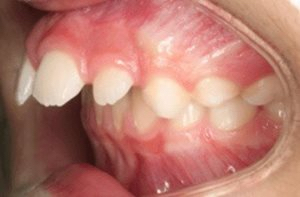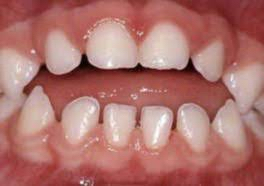Thumb Sucking
Sucking is one of a baby’s natural reflexes, much like grasping of objects. It is a normal infant habit, which makes the child feel secure and happy. Thumb sucking usually decreases after the age of two. Sometimes, if a child continues vigorous and prolonged thumbsucking past the age of four, it can create problems with normal dental development. This may lead to developing a protruding upper jaw, an open bite, displaced teeth and subsequently enable a tongue thrust habit which will accentuate the “gap formed” at the front of the mouth or even the side of the mouth. Ask your dentist whether your child’s oral habits may cause future dental problems.


Most children who are 4 or 5 years old have multiple means of calming themselves when they are upset and entertaining themselves when they feel bored. No longer dependent on their thumb or pacifier as their only option for emotional comfort, older preschoolers can walk into a different room and find a new toy if they are bored, run to mom for a hug if they feel upset, and open the refrigerator door to pull out an apple if they are hungry.
Yet the sucking is likely to continue. That is because it feels good. Then how may parents help their child end this comforting habit?
How to Stop Your Child from Sucking Their Thumb
According to psychologists, habit-ending proceeds most effectively when it is motivated by a combination of fear and desire. The thinking part of the child emerges by age three to four which makes that period good for habit-stopping. Regardless, ending a habit starts with a decision and an informative, friendly conversation.
The tone must be sensitive without making the child feel bad about himself/herself. Do not use shame or guilt to motivate. Avoid setting up a power struggle. Raise the issue, offer new information that makes the continuation of the habit look less appealing and motivate your child by gains that will come with overcoming the habit.
It is important to devise a way to keep track of progress and tying in with a small reward can be helpful. Keep your child engaged. When possible, have your child participate in coming up with a method like the type of reminder that can be used, such as the use of a sock to cover their thumb while they are sleeping.
Some parents find success by substituting out the thumb with a pacifier early on, because a pacifier can be readily removed.
Expect multiple slip-ups. Patience and persistence are essential for success. Good luck! And, if you have questions about caring for your own or your children’s teeth, please contact us. We offer a full range of dental services at our dental office in Burnaby.
Next blog: First Dental Visit
